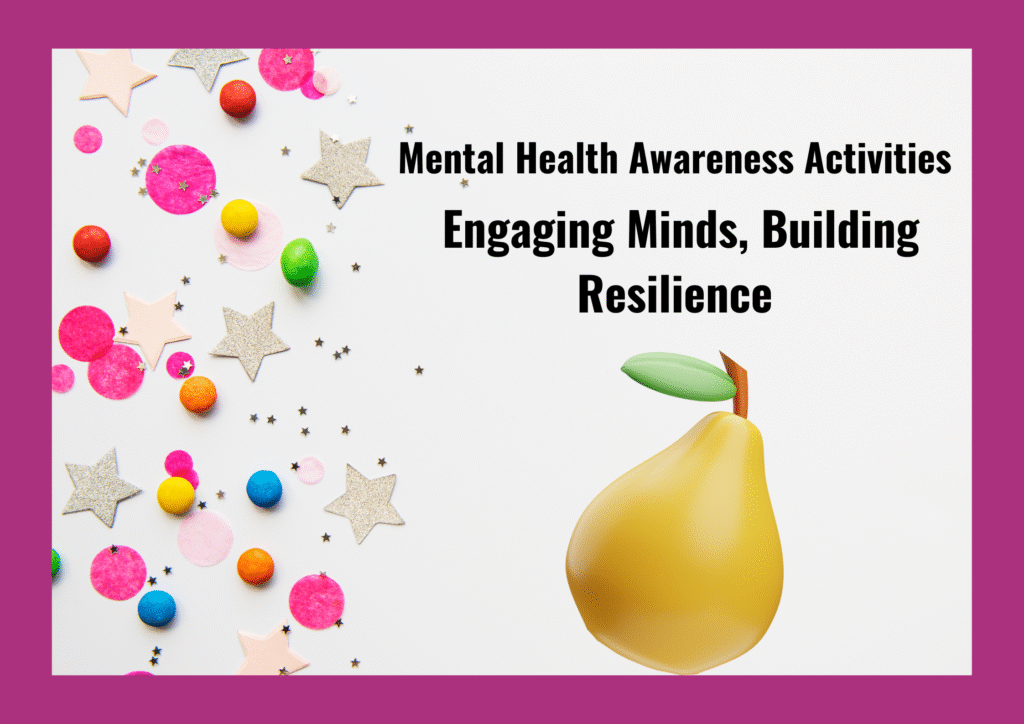Introduction
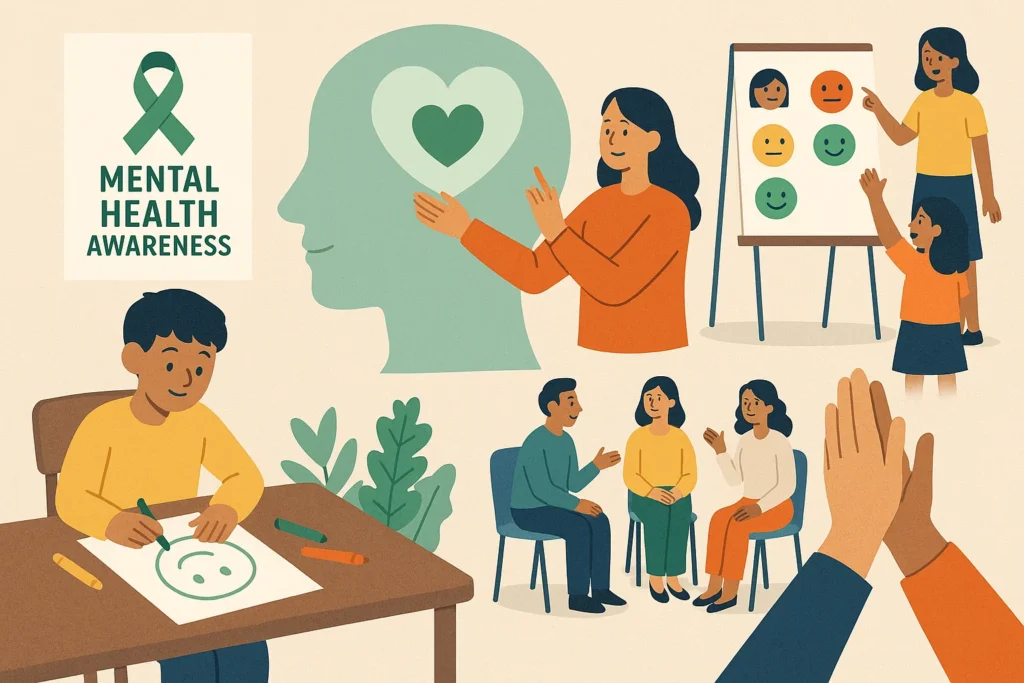
Despite increased conversations around mental health, many still lack the tools or resources to actively support emotional well-being. Mental health awareness is not just about knowledge—it requires action. So, how can individuals, schools, and workplaces encourage mental wellness in practical, engaging ways? This article offers creative and research-backed mental health awareness activities suitable for all ages, including children, teams, and groups, that help foster emotional intelligence, reduce stigma, and promote community well-being.
Why Mental Health Awareness Activities Matter
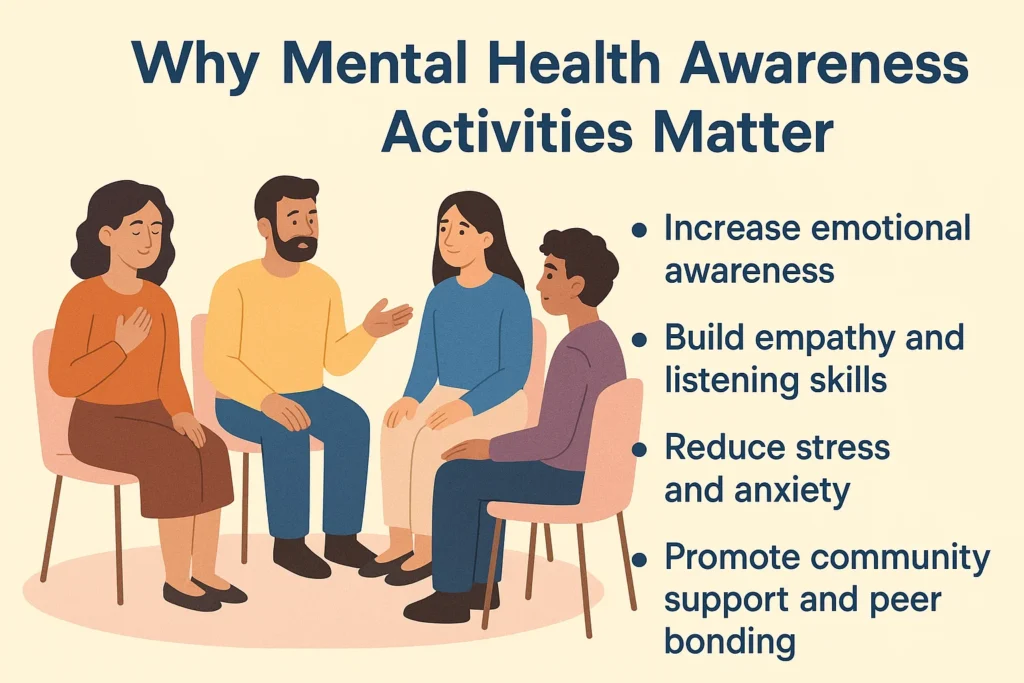
Mental health challenges affect 1 in 5 adults in the U.S. annually, and early intervention is key to long-term wellness (NAMI, 2023). Awareness activities provide an interactive, supportive way to explore emotions, coping skills, and communication strategies.
Whether it’s a guided group activity or a solo reflective exercise, structured mental health activity ideas can:
- Reduce stress and anxiety
- Build empathy and listening skills
- Increase emotional awareness
- Promote community support and peer bonding
Mental Health Crafts for Kids
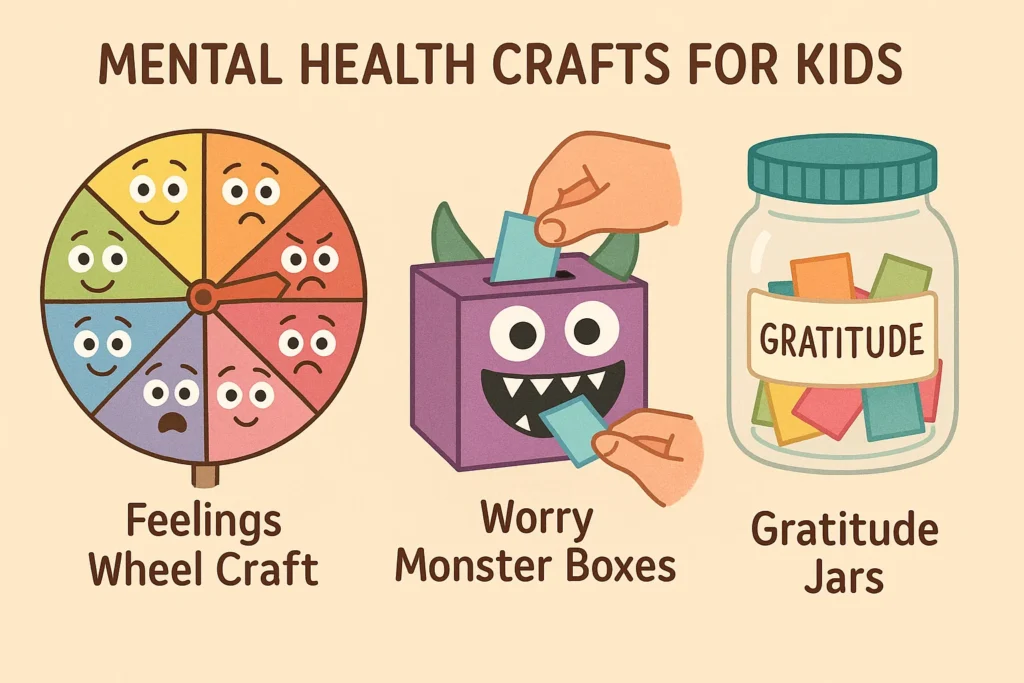
Children process emotions differently than adults, often relying on creative expression to make sense of their feelings. Mental health crafts for kids offer an engaging, age-appropriate way to teach mindfulness and self-awareness.
Examples include:
- Feelings Wheel Craft: Helps children identify and name emotions.
- Worry Monster Boxes: A fun way to “feed” worries into a paper creature, symbolizing release.
- Gratitude Jars: Kids write or draw things they are grateful for, promoting positive thinking.
Crafts help children build emotional vocabulary and make mental wellness part of everyday play.
Worksheets for Mental Health: Reflection and Growth
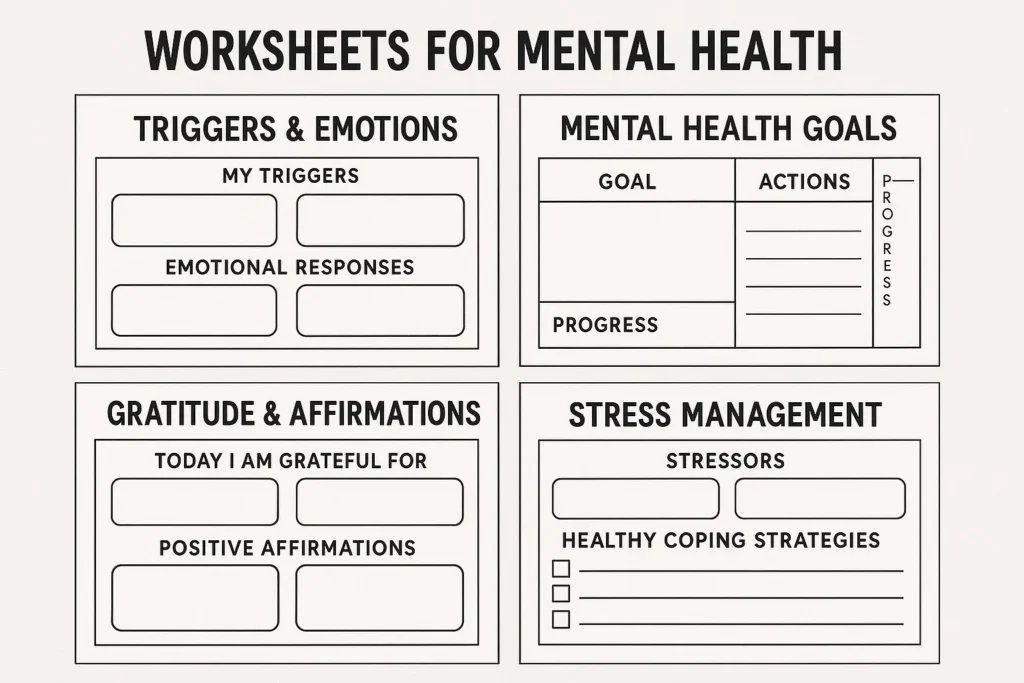
Printable or digital worksheets for mental health are excellent tools for promoting self-reflection, especially among teens and adults. Educators, therapists, or workplace managers can use them to open conversations and encourage journaling or goal setting.
Popular worksheet topics include:
- Identifying triggers and emotional responses
- Goal tracking for mental wellness
- Gratitude and positive affirmation logs
- Stress management strategies
These worksheets are flexible, easy to use, and ideal for mental health work activities or therapy support.
Mental Health Activity Ideas for Schools and Communities
Integrating mental health into school and community events promotes normalcy around emotional care. Teachers and community leaders can organize the following:
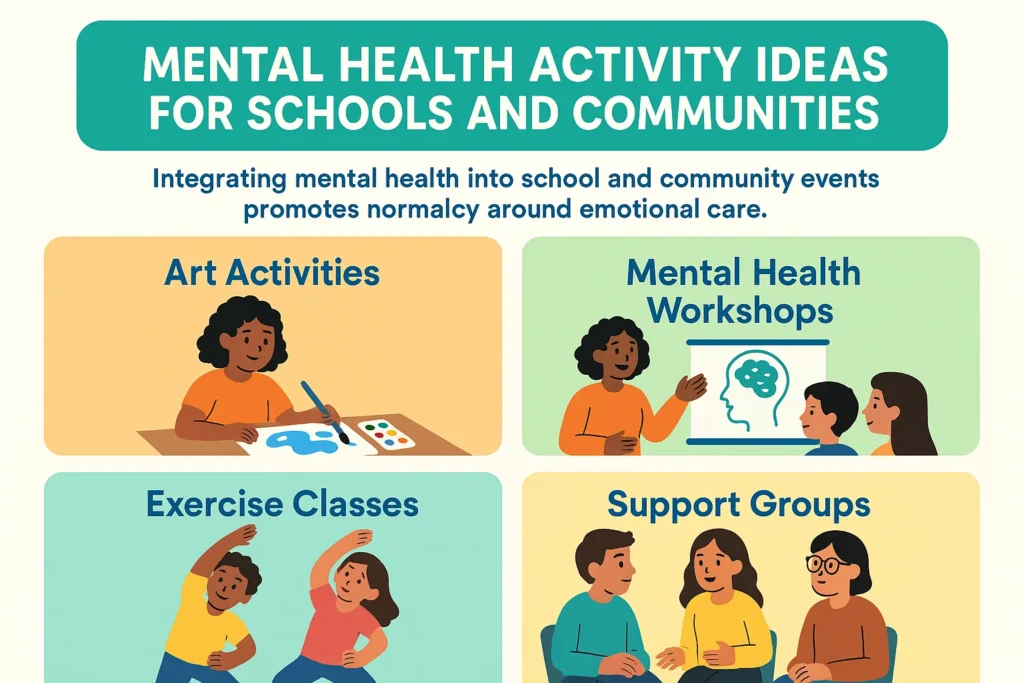
- Mindfulness Monday: Start the week with breathing exercises or short meditations.
- Kindness Challenges: Encourage acts of kindness to build empathy and belonging.
- Storytelling Circles: Safe spaces for students or community members to share personal experiences and listen to others.
- Mental Health Vision Boards: Use creative collaging to explore personal growth goals.
Such mental health activity ideas create inclusive, healing environments.
Mental Health Work Activities That Support Employee Wellness
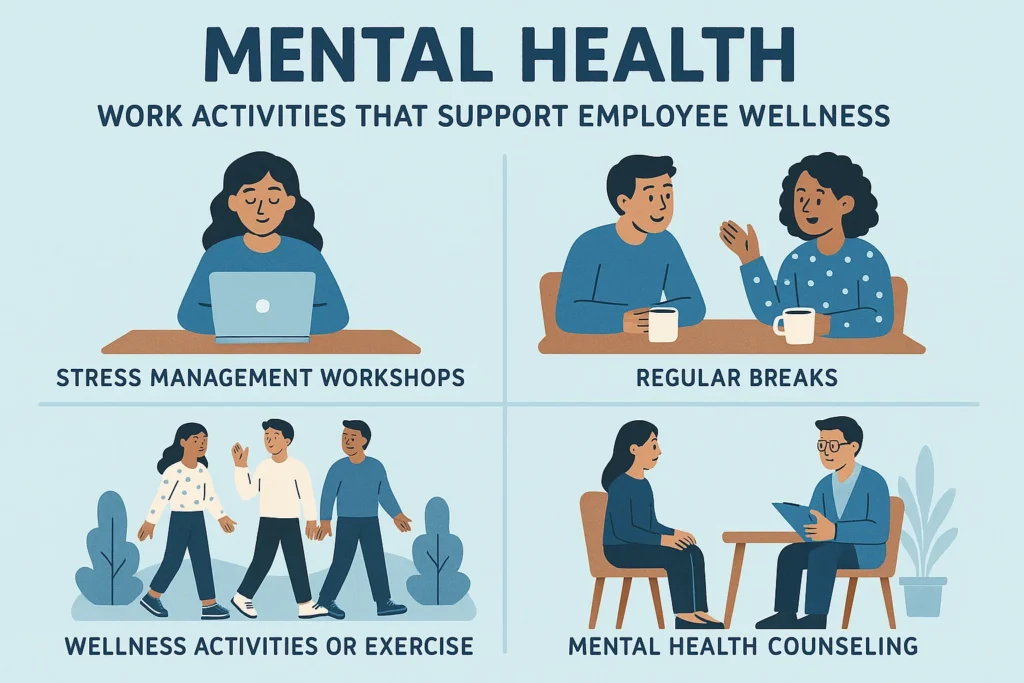
Workplace mental health initiatives are critical, especially as 76% of U.S. workers reported at least one symptom of a mental health condition in the past year (Mind Share Partners, 2023). Mental health work activities can support stress management and morale.
Ideas include:
- Employee Mental Health Days: Paid days off for rest or therapy
- Wellness Check-Ins: Regular 1:1s focusing on emotional well-being
- Team Art Therapy Sessions: Guided drawing or painting to process stress creatively
- Lunch & Learn: Guest speakers or webinars about mental health education
These activities promote resilience, trust, and a healthier work culture.
Group Activities That Strengthen Mental Health
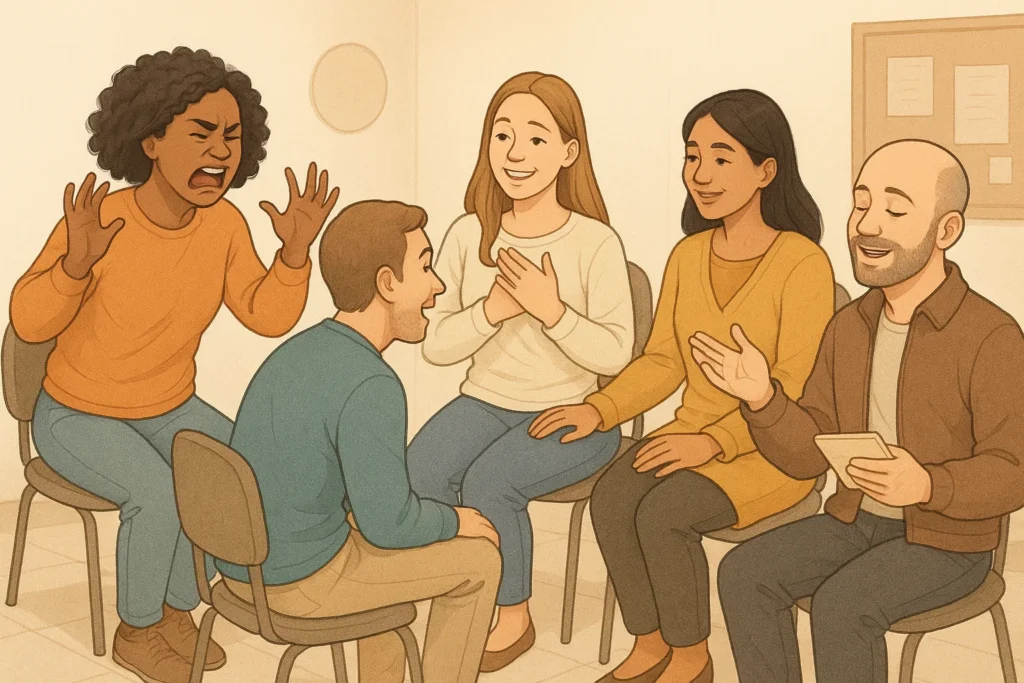
Mental health group activities build trust and shared emotional vocabulary. Ideal for therapy groups, classrooms, or retreats, these exercises are designed to create connection and reduce feelings of isolation.
Recommended group activities:
- Feelings Charades: Act out emotions and guess, building emotional intelligence.
- Affirmation Circles: Participants compliment or affirm the strengths of others.
- Guided Gratitude Sharing: Group members each share a moment of gratitude.
These activities foster empathy, confidence, and emotional resilience.
Virtual Mental Health Awareness Activities
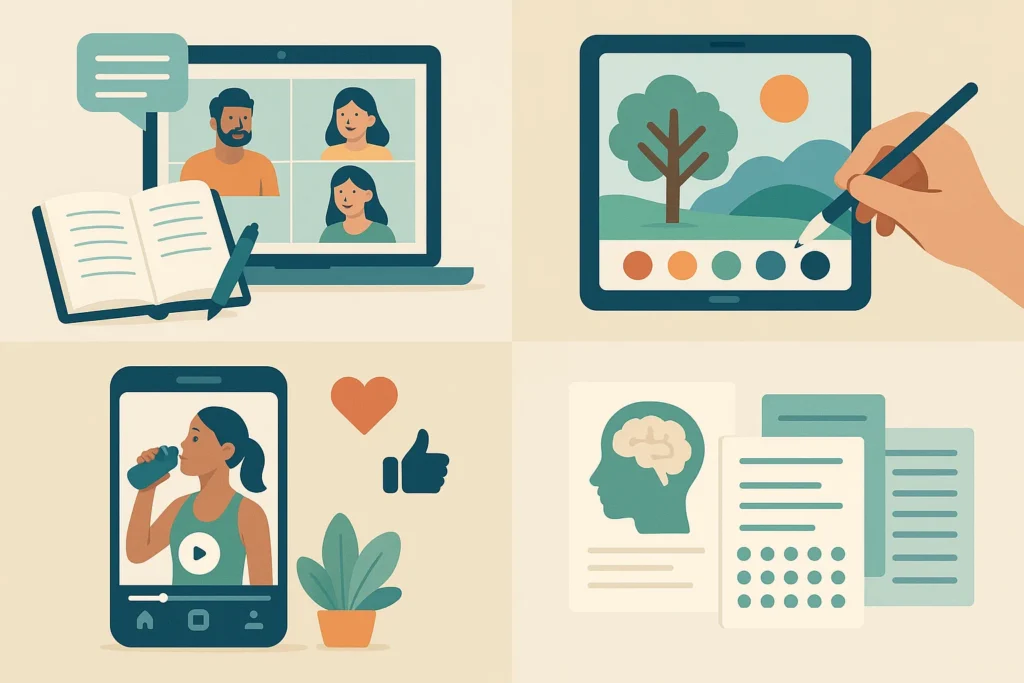
With hybrid work and remote learning becoming more common, virtual options are essential. Digital activities ensure accessibility and flexibility.
Examples:
- Virtual Journaling Clubs: Weekly prompts shared in group chats or Zoom calls
- Online Art Therapy: Digital painting apps used in group sessions
- Video Wellness Challenges: Team members share short videos of healthy habits
- Digital Mental Health Toolkits: Downloadable worksheets, infographics, and tracking tools
These options are inclusive and adaptable for global teams, students, or therapy groups.
Measuring the Impact of Mental Health Activities
Evaluating the effectiveness of these activities ensures continuous improvement. Metrics to consider include:
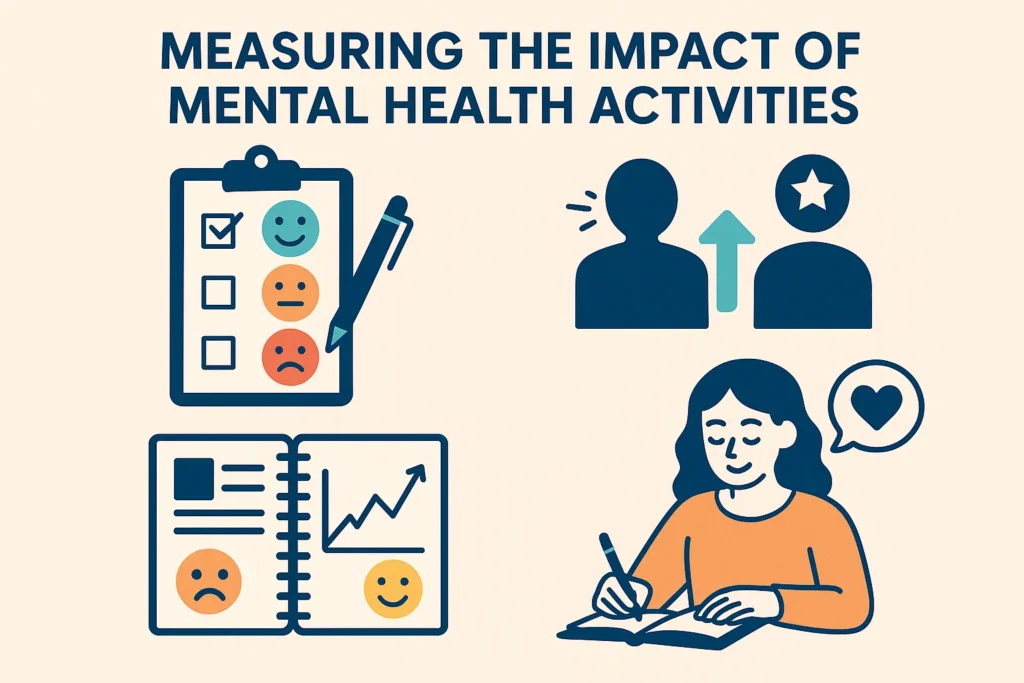
- Participant feedback surveys
- Changes in absenteeism or engagement
- Mood tracking pre- and post-activity
- Qualitative testimonials or journaling outcomes
Tracking progress helps leaders, educators, or counselors tailor future mental health awareness activities more effectively.
FAQ: Frequently Asked Questions
Q1: Are mental health activities effective for children?
A1: Yes, especially when age-appropriate. Crafts and play-based exercises improve emotional expression and resilience.
Q2: What is the best group activity for teens?
A2: Affirmation circles and storytelling games are highly effective for promoting emotional confidence and reducing peer stigma.
Q3: Can these activities be done virtually?
A3: Absolutely. Many activities, including journaling, digital worksheets, and virtual art sessions, can be done online.
Q4: How often should workplaces host mental health activities?
A4: Monthly sessions are ideal, but even quarterly events can improve culture and well-being.
Conclusion
Mental health awareness activities offer practical, inclusive ways to strengthen emotional resilience at any age. Whether it’s mental health crafts for kids, worksheets for mental health in the workplace, or creative group activities, each action helps normalize conversations and promote positive mental habits. Implementing and sustaining these initiatives ensures mental well-being becomes a natural and celebrated part of everyday life.
